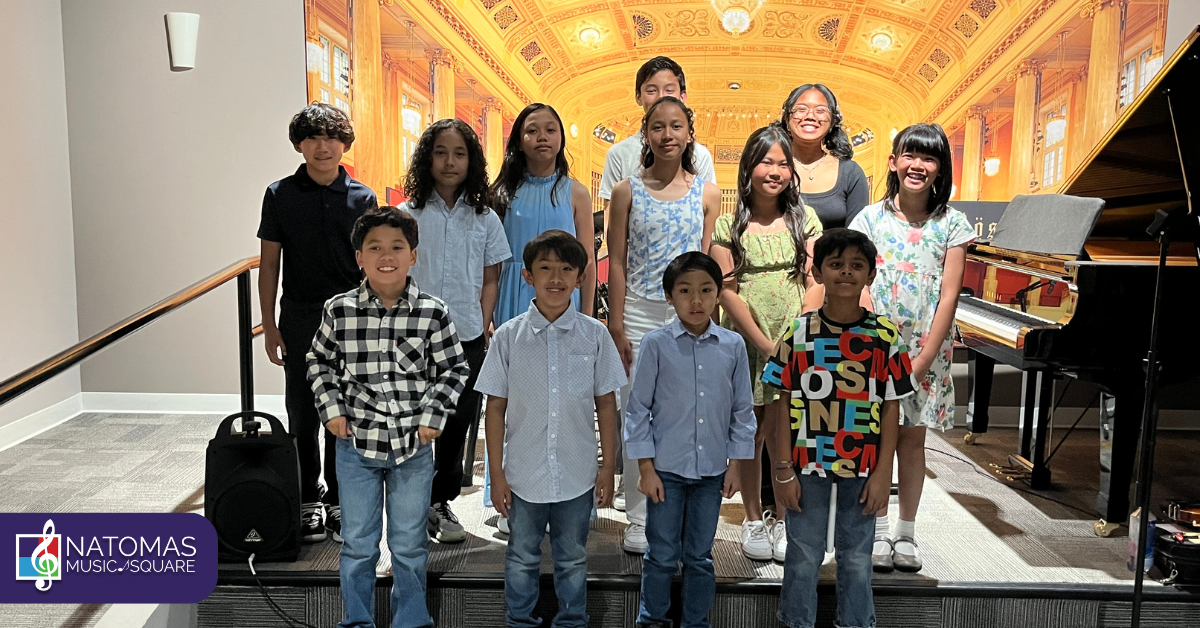Unlocking a Universe of Wonder: How Music Lessons Boost Your Child's Imagination

Every parent marvels at the incredible, whimsical worlds living inside their child's mind. From forts made of pillows to conversations with imaginary friends, a child's imagination is a powerful, magical thing. But what if there was a way to give that natural creativity a supercharged? What if you could hand your child a key to unlock even deeper, more vibrant worlds of their own making?
That key is music. More than just learning notes on a page, music lessons are a playground for the imagination, building essential skills that help your child think, create, and dream in high definition. Let's explore how hitting the right notes can expand your child's creative universe.
Music: The Language Before Words
Think about your favorite song. Can it make you feel happy, sad, or excited without a single word being sung? That's because music is a language of pure emotion. For a child, learning to play an instrument is like being handed a new set of crayons—sound crayons—to color their world and express feelings they might not have the words for.
When a child learns the difference between a joyful, upbeat melody and a slow, thoughtful tune, they are building emotional intelligence. This ability to understand and navigate the complex world of feelings is a cornerstone of imagination. They learn to tell stories, not just with characters and plots, but with the rise and fall of a melody, the triumphant crash of a chord, or the gentle strum of a guitar. This is storytelling at its most elemental and imaginative level.
From Playing Notes to Creating Worlds
One of the most exciting moments in a young musician's journey is when they move beyond simply playing what's written and start creating something of their own. This is where imagination truly takes flight. Music lessons, especially those that encourage improvisation, are a direct workout for the creative mind.
Improvising is like being asked to invent a story on the spot, but with notes instead of words. A teacher might give a student a simple rhythm or a handful of notes and ask, “What can you make with this?” There is no right or wrong answer, only endless possibilities. This process empowers a child to see themselves as a creator, not just a follower of instructions. They learn to take a small idea and build it into something unique and personal. This skill of spontaneous creation is invaluable, fostering a kind of mental flexibility that helps them solve problems in all areas of life, from a tricky math problem to navigating a disagreement with a friend.
Building a More Creative Brain
Beyond the artistic and emotional benefits, learning music is also a powerful exercise for the brain. When a child learns to read music, understand rhythm, and coordinate their hands, they are building new neural pathways. Think of it as constructing a new wing of their mental library.
This cognitive development is directly linked to a stronger imagination. Skills like pattern recognition in music help a child see connections and possibilities everywhere. The discipline of practicing a difficult passage teaches them perseverance and problem-solving. They learn to break down a big challenge into smaller, manageable parts—a skill that is essential for bringing any imaginative idea to life, whether it's building a complex Lego creation or, one day, designing a new technology. Music provides the mental architecture that allows creativity to flourish.
By nurturing their ability to express emotion, create spontaneously, and think in new ways, you're not just giving them a skill; you're expanding their entire world.
Ready to unlock your child's imaginative potential?
Give them the gift of music. Call us at (916) 419-9511 to learn more about our fun and engaging music lessons for children of all ages and skill levels. Let's start the adventure
References:
Gali-Linares, F., Bunt, L., & Mercadé-i-Carranza, M. (2021). Effects of the educational use of music on 3- to 12-year-old children’s emotional development: A systematic review. International Journal of Environmental Research and Public Health, 18(8), 3925. https://doi.org/10.3390/ijerph18083925
Alifia, K. A. N., & Setianingsih, E. S. (2024). The Effect of Music Intervention on Children's Cognitive Development: A Review Study. Jurnal Siklus, 13(1), 128-135.
